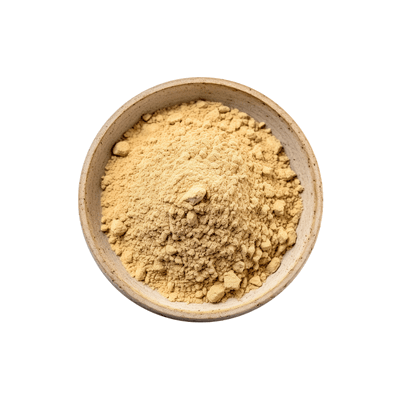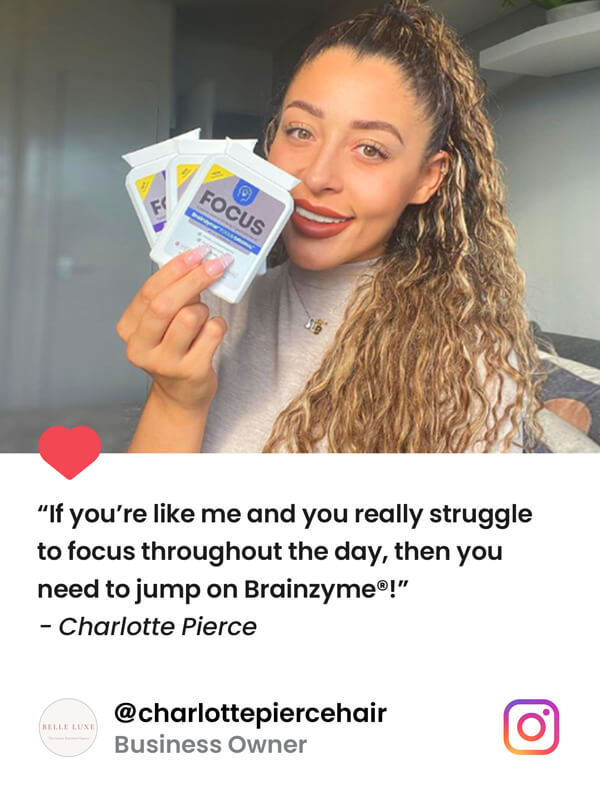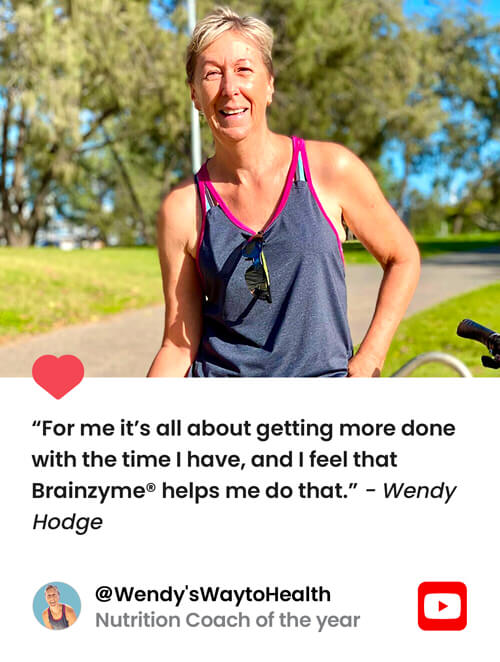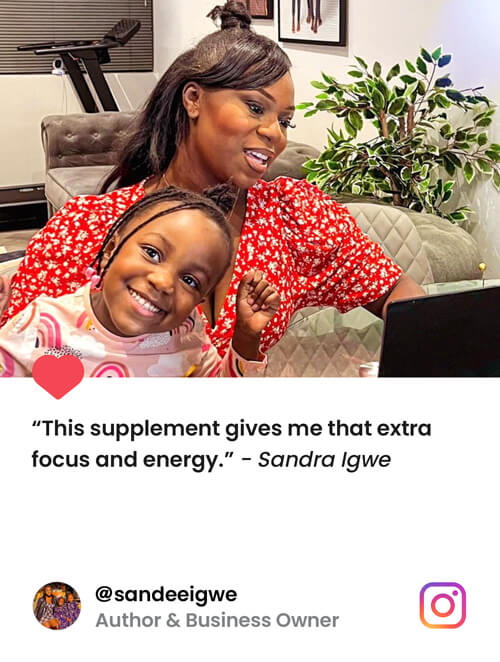
Supplements that help you focus.
Supplements that
help you focus.
Plant-powered supplements that really work. Made with scientifically proven ingredients to support your focus, energy, mood & memory.


Recommended by Medical Professionals
Our supplements have been personally used by over 2,000 medical professionals worldwide.
Medical Professional? Get your Exclusive Discount!
Medical Professional?
Get your Exclusive Discount!
Supplements for focus.
For everybody.

Free eBook
With your first purchase, you will receive our "Brainzyme® eBook: The Starter Guide" which contains lots of helpful information to get you started on your Brainzyme® journey!
30 Second Quiz
Community Reviews!
89% of Brainzyme® customers reported improvement in focus and mental performance within the first month.
Let customers speak for us
Clean, Plant-Powered
& Scientifically Proven Ingredients
Our clean and powerful formulas do not contain additives, fillers or binders - only essential active ingredients to support your focus.
All of our supplements contain plant and herbal extracts, essential vitamins and minerals that are scientifically proven to support concentration, cognition, energy, memory and mental performance.


Vegan-Friendly

Gluten-Free

Allergen-Free

GMO-Free

Cruelty-Free

Gelatin-Free

Sugar-Free

Soy-Free

Why Choose Brainzyme® FOCUS™?

Fast
Starts working from day 1.
Easy
Take 2 capsules - job done!
Healthy & Clean
Plant-powered - no additives, fillers or binders.
Powerful
Scientifically proven to work.
Convenient and
Cost-effective
Multiple active ingredients in a single supplement.
Our expertly formulated range is available at a significantly lower cost than purchasing the plant extracts, vitamins and minerals individually.
- Brainzyme® FOCUS ELITE™
29-in-1 formula - Brainzyme® FOCUS PRO™
20-in-1 formula - Brainzyme® FOCUS ORIGINAL™
12-in-1 formula

New Formula & Packaging


Stronger formula with an added enzyme for better absorption.
Up to 33% longer lasting effect.
Convenient & eco-friendly packaging.
Brainzyme® Featured in the Media
Our supplements have been featured and reviewed very favourably in a variety of media publications.
Join the Brainzyme® Community
Trusted by 120,000+ happy customers
Our Social Responsibility
As one of our core values, Brainzyme® is committed to supporting charitable causes for positive mental health, well-being, and education.
About Brainzyme®
Brainzyme® supplements are formulated and manufactured by Better Nutritional Science Ltd, based in Scotland.
We are one of the UK’s first brain supplement (natural nootropic) specialists to formulate products that deliver brain nutrition through scientifically proven plant-powered ingredients and essential nutrients, aiding individuals to ‘Think Clearer, Get More Done™’.
Since 2016, our products have been trusted by hundreds of thousands of customers, receiving thousands of 5-star reviews and positive feedback from medical experts. Operating globally from our headquarters in Edinburgh, we maintain dedicated websites for the UK, Germany, France, and North America.

Brainzyme® supplements are formulated and manufactured by Better Nutritional Science Ltd, based in Scotland.
We are one of the UK’s first brain supplement (natural nootropic) specialists to formulate products that deliver brain nutrition through scientifically proven plant-powered ingredients and essential nutrients, aiding individuals to ‘Think Clearer, Get More Done™’.
Since 2016, our products have been trusted by hundreds of thousands of customers, receiving thousands of 5-star reviews and positive feedback from medical experts. Operating globally from our headquarters in Edinburgh, we maintain dedicated websites for the UK, Germany, France, and North America.
Our customer service promise.
FREE SHIPPING OPTIONS
UK: Free tracked shipping for all orders.
International: Free international shipping on orders over £40 - all orders Tracked and/or Signed For.

365-DAY GUARANTEE
We are confident you'll love our supplements as much as we do, which is why we have a 100% satisfaction guarantee for 365 days so that you can try our products completely risk-free.

CUSTOMER SUPPORT
Our highly-trained customer support team is on hand to chat via phone, email, live chat or social media to guide you through your Brainzyme® experience.
Frequently Asked Questions
Mood claims are anecdotal.
Get started
Guaranteed SECURE Checkout
We use encrypted SSL security to ensure that your credit card information is 100% protected.
Click for more details

GUARANTEED DATA PROTECTION
We are registered with the UK's ICO (Information Commissioner's Office). The ICO is the UK’s independent authority set up to uphold information rights in the public interest, promoting data privacy for individuals.
Click for more details
100% SATISFACTION GUARANTEE
Try Brainzyme® FOCUS™ supplements today with our Money-Back Guarantee. You can return the items within 365 days for a full refund.
Click for more details



 DACH
DACH
 FR-BE
FR-BE
 US-CAN
US-CAN






































































































